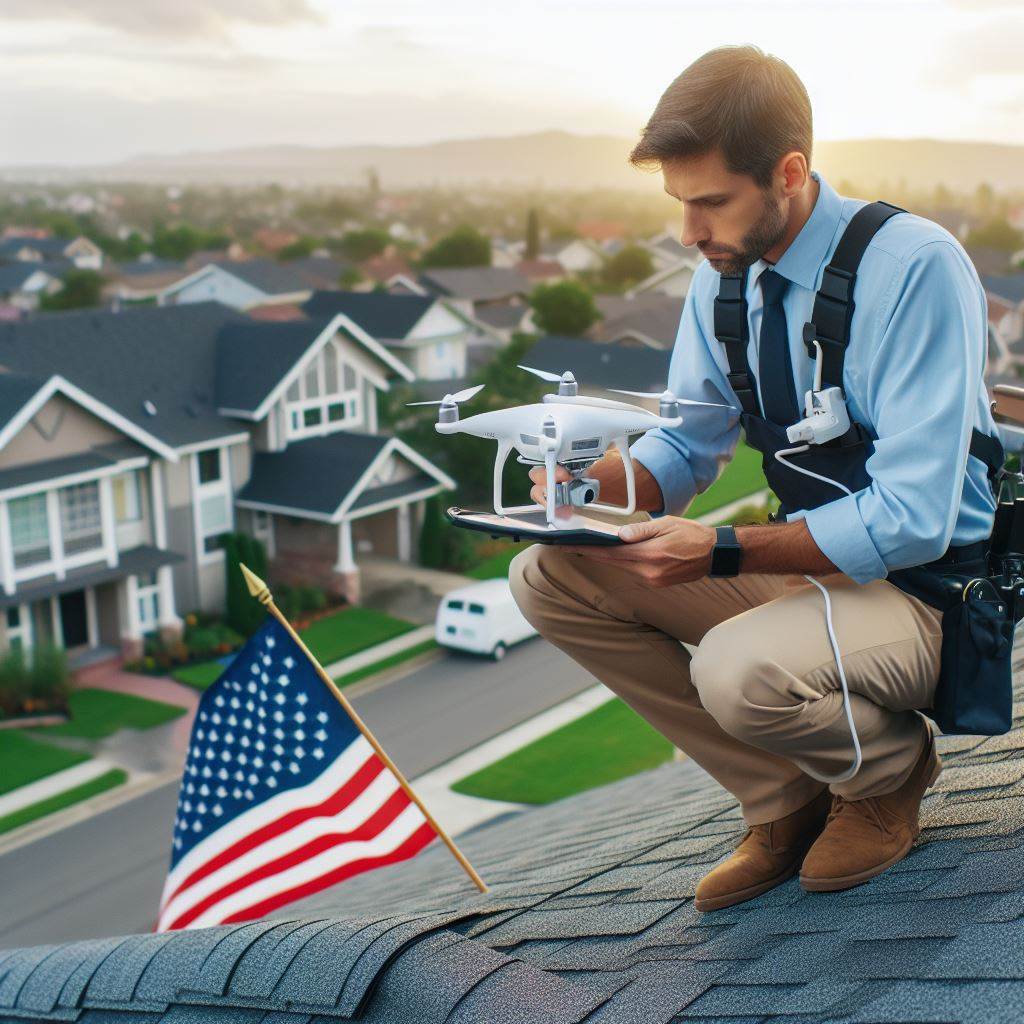Introduction
Remote property management refers to the use of technology to manage properties from a distance, allowing property owners or managers to oversee operations without being physically present.
Technology has revolutionized property management by providing innovative tools and platforms for efficient and effective management practices.
This blog post aims to explore various tech tips that can enhance remote property management and help property owners or managers streamline operations and improve productivity.
Property management software provides a centralized platform for tracking tenants, managing finances, and organizing maintenance requests.
By integrating smart home devices, property managers can remotely control and monitor various aspects of their properties, such as security systems, thermostats, and utility usage.
Virtual tours and online marketing enable property managers to showcase their properties to potential tenants without physical visits, saving time and reducing unnecessary foot traffic.
Installing remote monitoring systems, such as security cameras and sensors, allows property managers to remotely monitor property activities and identify potential issues.
Online rent collection platforms simplify payment processes, ensuring timely and secure transactions for both property managers and tenants.
Remote property management has become increasingly essential in the digital age, and technology plays a crucial role in its success.
By implementing these tech tips, property owners and managers can achieve efficient operations and maximize their property’s potential from anywhere in the world.
Setting up a Remote Property Management System
Remote property management is becoming increasingly popular in today’s digital age.
With the advancement of technology, property managers can now manage their properties from anywhere in the world.
In this section, we will discuss the steps to setting up a remote property management system, including choosing the right property management software and implementing cloud-based solutions for data storage and access.
Choosing the right property management software
Considerations when selecting software
Before diving into the wide array of property management software options, it is crucial to consider a few factors.
Firstly, the software should be user-friendly and provide a seamless interface.
Additionally, it should have all the necessary features to meet your specific property management needs.
Some key considerations include rent collection, tenant screening, maintenance tracking, and financial reporting.
Popular property management software options
There are numerous property management software options available in the market.
Some popular choices include AppFolio, Buildium, and Rent Manager.
These software platforms offer comprehensive solutions for property managers, streamlining various tasks and enabling efficient remote property management.
Implementing cloud-based solutions for data storage and access
Benefits of cloud computing in property management
Cloud computing has revolutionized the way property managers handle data storage and access.
By storing data on the cloud, property managers can access information from anywhere at any time, making remote property management a breeze.
Cloud-based solutions also provide automatic backups and ensure data security.
Top cloud storage providers for property management
Several cloud storage providers offer excellent services for property managers. Some top providers include Dropbox, Google Drive, and Microsoft OneDrive.
These platforms offer seamless integration with property management software and provide ample storage space for documents, photos, lease agreements, and other important files.
In essence, setting up a remote property management system requires careful consideration of property management software and implementing cloud-based solutions.
By choosing the right software and utilizing cloud storage, property managers can efficiently manage their properties from anywhere in the world.
Read: Property Investment: Spotting the Trends
Streamlining Communication with Tenants and Staff
Streamlining communication is crucial for successful remote property management.
By utilizing digital communication channels and online portals, property managers can effectively communicate with tenants and staff, ensuring smooth operations and timely problem resolution.
Utilizing digital communication channels
One of the key advantages of modern technology is the availability of various digital communication channels.
Email, messaging apps, and video calls offer convenience and efficiency in remote property management.
Email is a common and reliable method to communicate with tenants and staff. It allows property managers to send important documents, announcements, and updates instantly.
Additionally, email provides a documented trail of communication, ensuring clarity and accountability in conversations.
Messaging apps, such as Slack or Microsoft Teams, facilitate real-time communication. They enable instant messaging, file sharing, and group conversations.
Property managers can use these apps to quickly address urgent matters, collaborate with team members, and provide immediate responses to tenants’ inquiries.
Video calls are invaluable when face-to-face communication is necessary.
Platforms like Zoom or Google Meet allow property managers to conduct virtual meetings with tenants and staff.
Video calls create a personal touch, enabling better understanding and relationship building, even when physically distanced.
When choosing communication platforms, it’s important to consider their advantages and compatibility with your property management needs.
User-friendly interfaces and integration capabilities with other property management tools are crucial factors to ensure an efficient workflow.
Online portals for tenants and owners
Online portals provide a centralized platform for tenants and owners to access important information and communicate with property managers.
These portals enhance transparency and streamline processes for all parties involved.
Tenant portals offer numerous features and benefits.
They provide 24/7 access to lease agreements, rental payment history, and important documents, reducing administrative burdens for property managers.
Tenants can conveniently submit maintenance requests and track their status, ensuring prompt resolutions.
Additionally, property managers can use tenant portals to communicate announcements, updates, and important reminders efficiently.
Several property management software options include tenant portals as part of their features.
Appfolio is a popular choice, offering comprehensive tenant and owner portals along with built-in communication tools.
The platform provides a seamless experience for both property managers and tenants, facilitating effective communication and efficient property management.
Buildium is another user-friendly property management software.
It offers customizable portals for tenants and owners, allowing property managers to tailor the platform to their specific needs.
With its robust communication features, Buildium simplifies interactions between property managers, tenants, and owners, ensuring everyone stays informed and connected.
Yardi is a well-known property management software that includes tenant portals with integrated accounting and maintenance management.
With Yardi’s portals, tenants can easily access their account information, make online rent payments, and submit maintenance requests.
These features contribute to a seamless communication process and improved tenant satisfaction.
By utilizing digital communication channels and online portals, property managers can effectively streamline communication with tenants and staff in remote property management.
These tools enhance transparency, efficiency, and collaboration, ultimately leading to better property management outcomes.
Read: Rental ROI: Maximizing Your Investment
Remote Maintenance and Repairs
Smart home technology for remote monitoring
Overview of IoT devices and their role in property management
The Internet of Things (IoT) devices play a crucial role in remote property management by allowing property owners to monitor and control various aspects of their properties from a distance.
These devices are interconnected and can communicate with each other through the internet, enabling seamless automation and remote accessibility.
Examples of smart home devices for maintenance and repairs
There are numerous smart home devices available in the market that can facilitate remote maintenance and repairs.
Some examples include smart thermostats, leak detection sensors, security cameras, smart locks, and smart lighting systems.
These devices offer convenience, energy efficiency, and improved security for remote property owners.
Building relationships with local contractors
Establishing a trusted network of service providers
One of the challenges of remote property management is finding reliable and trustworthy contractors to handle maintenance and repair tasks.
It is essential to establish a network of local service providers who can be relied upon to carry out necessary repairs promptly and efficiently.
This can be achieved through thorough research, online reviews, and recommendations from local residents.
Communication strategies when coordinating repairs remotely
Effective communication is key when coordinating repairs remotely.
Property owners must establish clear channels of communication with local contractors to ensure smooth coordination and timely completion of repairs.
Utilizing video calls, instant messaging, and project management software can help bridge the communication gap and provide real-time updates on repair progress.
Overall, remote maintenance and repairs can be efficiently managed through the utilization of smart home technology and establishing strong relationships with local contractors.
The combination of IoT devices and reliable service providers allows property owners to remotely monitor their properties and promptly address any maintenance or repair issues that may arise.
This not only ensures the smooth operation of the property but also provides peace of mind for remote property owners knowing that their investments are well taken care of even from a distance.
Read: Cybersecurity: Protecting Property Data

Automating Financial Management
Benefits of automated rent collection
In remote property management, technology plays a vital role in ensuring smooth operations and efficient financial management.
One area where technology can greatly benefit property managers is in automating the process of rent collection.
Automated rent collection brings convenience not only for tenants but also for property managers.
With the availability of various tools, property managers can streamline the rent collection process.
Online payment platforms allow tenants to easily make rent payments electronically, eliminating the need for mailing checks or making in-person payments.
Additionally, these platforms often offer features that automatically apply late fees if a tenant fails to make a timely payment.
By setting up automated reminders and penalties, property managers can ensure a consistent and reliable rent collection process.
Online accounting and bookkeeping solutions
Accurate and organized record-keeping is essential for effective property management.
Online accounting and bookkeeping solutions provide property managers with the tools they need to keep track of financial transactions and generate reports.
These solutions help property managers stay organized by storing financial data securely and making it easily accessible when needed.
Utilizing recommended online accounting software specifically designed for property management can greatly simplify financial management tasks.
These software solutions offer features such as tracking income and expenses, generating financial statements, and providing insights into the financial health of the property.
By automating the recording and categorization of transactions, property managers can save time and reduce the risk of errors.
One highly recommended online accounting software for property management is QuickBooks Online.
QuickBooks Online offers a range of features tailored to the needs of property managers, including easy income and expense tracking, customizable reports, and the ability to integrate with other property management software.
By using software like QuickBooks Online, property managers can ensure accurate record-keeping and have a clear overview of the financial status of their properties.
In short, automating financial management in remote property management brings numerous benefits.
Automating rent collection provides convenience for tenants and property managers, while online accounting and bookkeeping solutions ensure accurate and organized record-keeping.
By utilizing the recommended online accounting software, property managers can streamline financial management tasks and gain valuable insights into the financial health of their properties.
Embracing technology in financial management is crucial for successful remote property management.
Read: Energy Management: Tech Solutions for Property Managers
Enhancing Security from Afar
Nowadays, managing properties remotely has become a necessity for many property owners and managers.
With advancements in technology, remote property management has become easier and more efficient.
In this section, we will explore how to enhance security from afar using remote video surveillance systems and smart access control systems.
Remote video surveillance systems
Remote video surveillance systems have proven to be instrumental in enhancing property security.
By utilizing remote monitoring, property owners can ensure that their properties are constantly under surveillance, even when they are not physically present.
The advantages of remote monitoring for property security include:
- Real-time monitoring: With remote video surveillance systems, property owners can monitor their properties in real-time, allowing them to identify any suspicious activities immediately.
- Deterrence: The presence of visible surveillance cameras can act as a deterrent to potential criminals, reducing the likelihood of property crimes.
- Evidence collection: In the unfortunate event of a security breach or crime, remote video surveillance systems can provide valuable evidence to law enforcement authorities, aiding in the investigation and potential prosecution of the culprits.
When it comes to choosing the right remote video surveillance systems, there are several options available in the market. Some of the top systems include:
- Nest Cam Outdoor: This system offers a weatherproof design and high-definition video quality, ensuring clear footage even in challenging weather conditions.
- Arlo Pro 2: Known for its wireless capabilities, this system provides flexibility in camera placement while maintaining a reliable connection.
- Ring Spotlight Cam: Integrating motion-activated spotlights and a siren, this system offers enhanced security features to deter potential intruders.
Smart access control systems
Smart access control systems are another essential component of remote property management.
These systems allow property owners to remotely control and monitor access to their properties. The key features and benefits of remote access control include:
- Remote control: Property owners can grant or revoke access to their properties remotely, providing flexibility and convenience while maintaining security.
- Activity logs: Smart access control systems provide detailed activity logs, allowing property owners to track who enters and exits their properties at any given time.
Some popular smart access control solutions include:
- August Smart Lock Pro: This system allows property owners to control access to their properties through a smartphone app, eliminating the need for physical keys.
- Kisi: Offering cloud-based access control, this system provides secure access management while integrating with existing security systems.
- Schlage Connect: Known for its compatibility with smart home platforms, this system combines security and convenience by allowing remote access control through voice commands.
In review, enhancing security from afar is crucial for remote property management.
Remote video surveillance systems provide real-time monitoring, deterrence, and evidence collection, while smart access control systems offer remote control and detailed activity logs.
By utilizing these technologies, property owners and managers can ensure the safety and security of their properties even when they are not physically present.
Conclusion
In our discussion, we emphasized the importance of integrating remote property management technology into your operations.
Utilizing tools such as cloud-based software, IoT devices, and virtual communication platforms can significantly enhance efficiency and productivity in managing properties from afar.
As property managers, it is crucial to embrace these technological advancements wholeheartedly.
By doing so, you not only stay competitive in the market but also position yourself as a forward-thinking professional who can adapt to the evolving needs of both property owners and tenants.
Don’t shy away from exploring new tools and methods that can simplify your tasks and improve overall outcomes.
Looking ahead, the future of property management undoubtedly resides in the digital realm.
With the continuous development of innovative technologies, we can expect even greater opportunities for streamlining processes, optimizing resources, and delivering exceptional experiences for all stakeholders involved.
Embracing remote property management technology isn’t just a trend—it’s a strategic imperative for staying relevant and thriving in the digital age.
So, seize the moment, embrace the possibilities, and propel your property management business into a successful future powered by technology.




